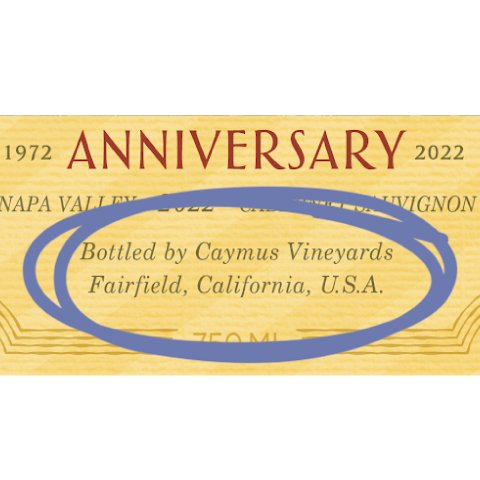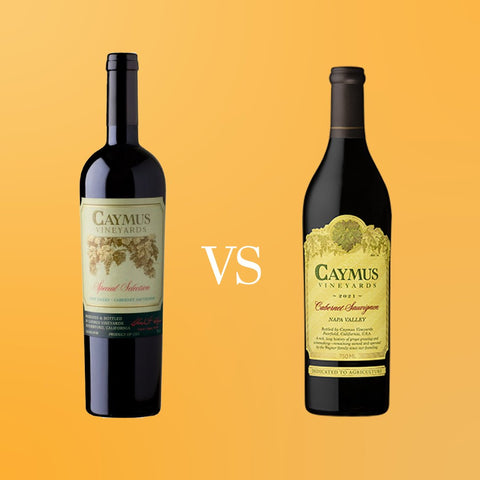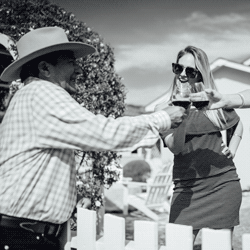Caymus Vineyards, a renowned winery in the Napa Valley, has faced criticism over its flagship wine, the Napa Valley Cabernet Sauvignon, for being “only bottled by” the vineyard. To assess the validity of this criticism, we must delve into the nuances of the phrase “bottled by” and the broader implications it carries in the wine industry.
The Significance of “Bottled By”
The term “bottled by” on a wine label indicates that the bottling process was handled by the entity named on the label. In this context, it means that Caymus Vineyards is responsible for the bottling of their Napa Valley Cabernet Sauvignon. However, this does not necessarily imply that the entire winemaking process—from grape cultivation to fermentation and aging—was conducted exclusively by Caymus.
In the wine industry, labels can carry various designations that signify different levels of involvement in the production process:
- **Estate Bottled**: This term means that the wine was produced and bottled on the property of the vineyard, and that the vineyard controlled the entire process from grape growing to bottling.
- **Produced and Bottled By**: This indicates that the winery fermented at least 75% of the wine, and it was bottled on-site.
- **Bottled By**: This simply means that the wine was bottled by the named entity, without specifying their involvement in other stages of production.
The Criticism of Caymus Vineyards
Critics argue that by using “bottled by,” Caymus Vineyards might be perceived as engaging in a potentially misleading practice. The concern is that consumers might assume a higher level of involvement in the winemaking process than is actually the case. For a storied winery with a reputation for quality, transparency in labeling is crucial to maintaining consumer trust and upholding industry standards.
However, it is important to recognize that Caymus Vineyards has a long-standing reputation for producing high-quality wines. Their Napa Valley Cabernet Sauvignon has received acclaim and built a loyal following over the years. The practice of bottling wines that may have been sourced from various growers or even other winemakers is not uncommon in the industry. Many reputable wineries engage in this practice to maintain consistent quality and meet demand.
Defending Caymus Vineyards
Some critics and wine experts defend Caymus Vineyards' use of the “bottled by” label, arguing that it does not detract from the quality and authenticity of their wines. Renowned wine critic Robert Parker has stated, “Caymus has consistently produced top-quality wines, and their transparency about the bottling process does not diminish the excellence of their product.”
Similarly, wine columnist Eric Asimov of The New York Times has noted, “The practice of bottling sourced wines is widespread and often misunderstood. What matters most is the winery's commitment to quality, which Caymus has demonstrated time and again.”
These defenders emphasize that the integrity and consistency of Caymus Vineyards' wines are paramount. They argue that the term “bottled by” should not overshadow the exceptional craftsmanship and dedication that go into every bottle.
Is the Criticism Fair?
To determine if the criticism is fair, we need to consider several factors:
1. **Transparency**: Has Caymus been transparent about their sourcing and production practices? If they have openly communicated that some of their grapes are sourced from other vineyards, and they still maintain stringent quality control, the criticism may be less warranted.
2. **Quality**: Does the bottling practice affect the quality of the wine? If Caymus can consistently produce high-quality wines, the specific designation on the label may be less significant to consumers who trust the brand’s reputation.
3. **Industry Standards**: How does Caymus’ practice compare to industry norms? If similar practices are common among other respected wineries, the criticism might reflect broader industry challenges rather than issues specific to Caymus.
Final Note
While the phrase “bottled by” may raise questions about the extent of Caymus Vineyards’ involvement in the winemaking process, it is essential to consider the broader context. The winery’s reputation for excellence, transparency about their practices, and the consistent quality of their wines play crucial roles in evaluating the fairness of the criticism.
Ultimately, the phrase “bottled by” should prompt consumers to seek more information about a wine’s production, encouraging wineries to be clear and forthright about their practices. For Caymus Vineyards, maintaining open communication and continuing to deliver exceptional wines will be key to addressing any concerns and preserving their esteemed place in the world of wine.




코멘트 (0)
이 기사에는 댓글이 없습니다. 가장 먼저 메시지를 남겨보세요!